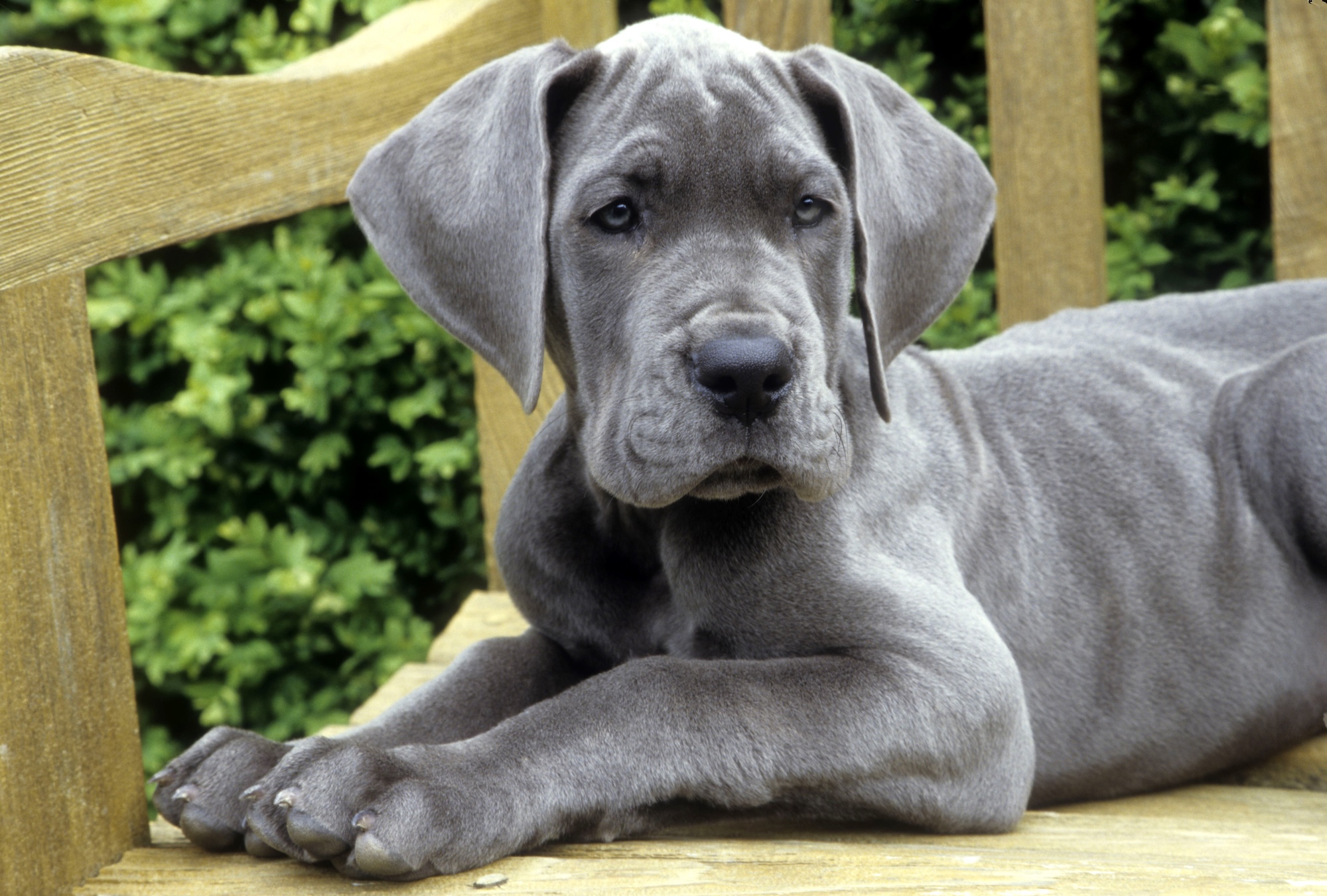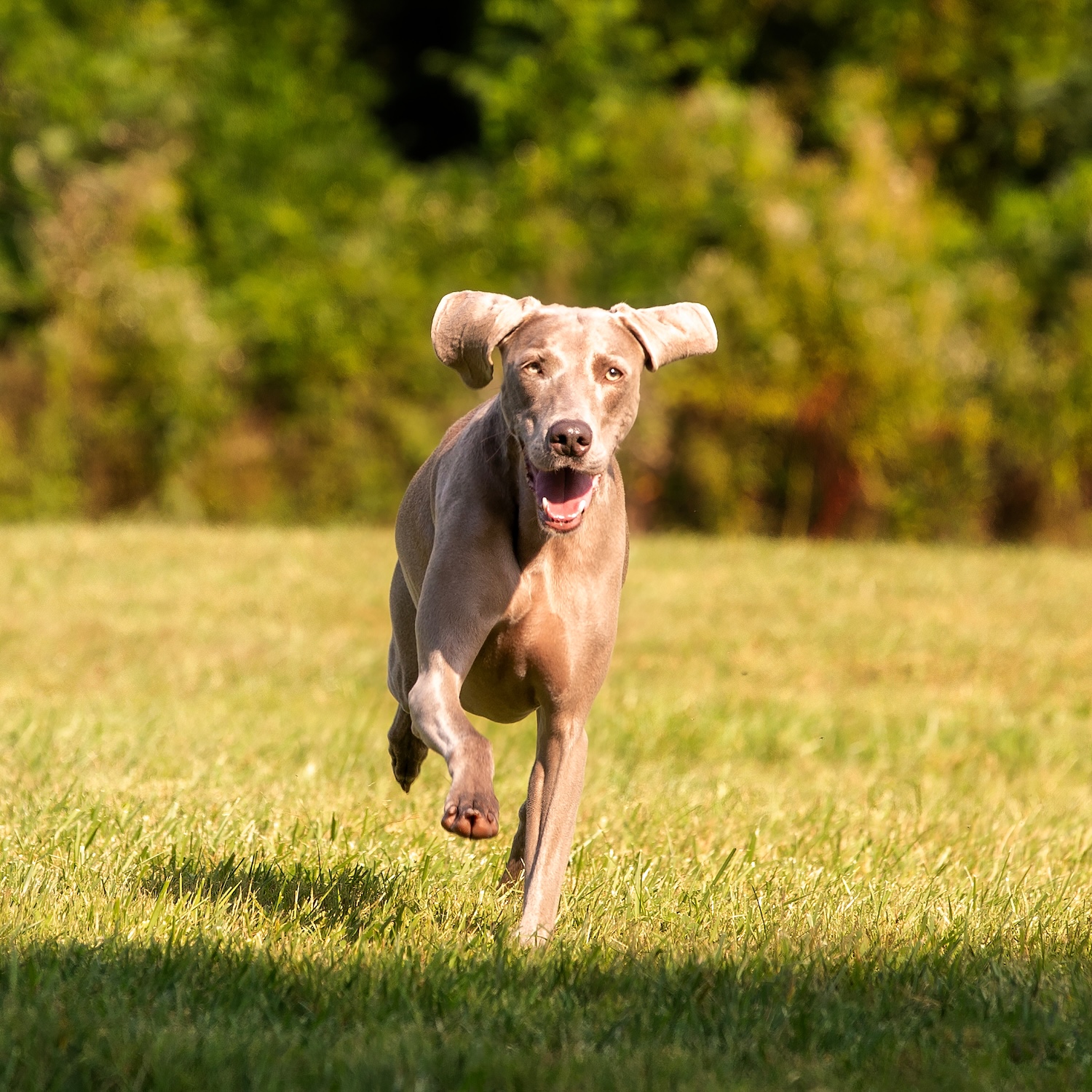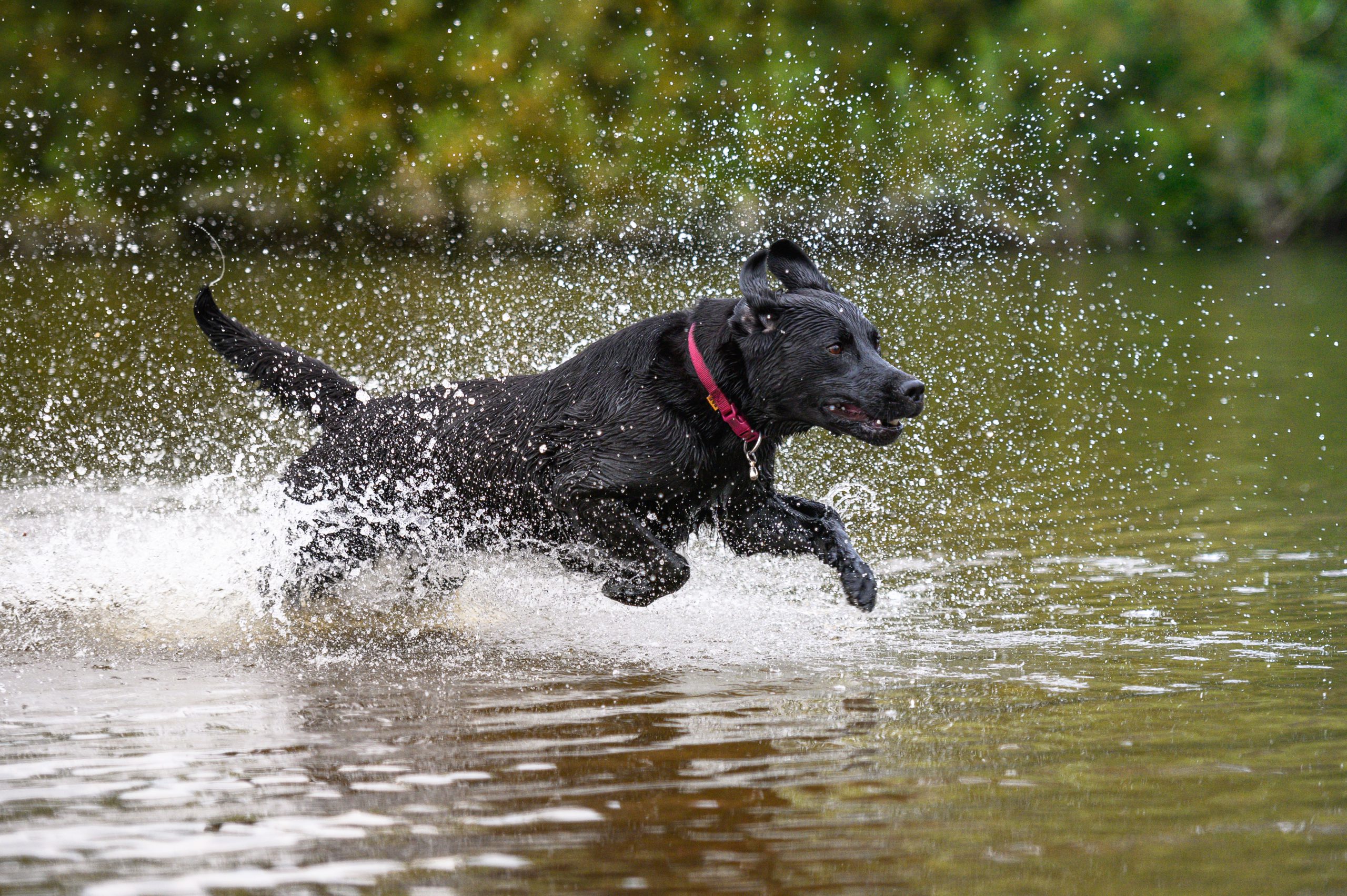Affectionate, charming, and playful, Shih Tzus spent years perched in the laps of Chinese emperors and their families—but they make excellent companions for those who live in apartments as well as palaces. Many Shih Tzu owners develop a fierce devotion to the breed. One such human—Carolyn McAmis, who lives with a Shih Tzu named Oreo—says: “If I were rich, I would have 1,000 Shih Tzus.”
While a thousand dogs of any kind might be a lot for you to take on, we’ve put together some tips that can help you decide whether to bring one of these energetic little pups home—or take better care of the one you already have.
Keep in mind that, while dogs of a certain breed may share common characteristics, every dog is an individual shaped by unique genetics, experience, and environmental factors. Like humans, dogs have their own distinct personalities. Pay attention to what your pup is telling you about their needs!
Basic Shih Tzu facts
According to the American Kennel Club, Shih Tzus typically weigh 9 to 16 pounds and their average lifespan is 10 to 18 years. They’re brachycephalic—a term that refers to dogs with flat faces and short snouts—and this can make breathing challenging for them when it’s hot or during heavy exertion. Their silky double coats come in a wide variety of colors—including white, black, gold, and brindle—and with various markings. While their coats can grow to floor-skimming lengths—as seen in the show ring—they can be more manageably kept in a shorter “puppy cut.”
How to pronounce “Shih Tzu”
Correct pronunciations of this breed’s name include “sheed-zu” and “sheet-zu.” Just make sure it doesn’t sound like you’d have to bleep any part of it on the radio. Here’s a helpful demo.
“Should I get a Shih Tzu?”
If you are looking for a companion dog who will want to stay by your side throughout the day and bring a smile to your face, a Shih Tzu can be a wonderful addition to your life. A properly trained Shih Tzu should be able to get along with well-mannered children and other dogs. They’re adaptable, and can thrive in a tiny studio or a big house with a yard.
However, as with any other dog, caring for a Shih Tzu requires work from humans. Many Shih Tzus are very attached to their people, so don’t get one if you’re looking for a dog who’s content to spend lots of time without you.
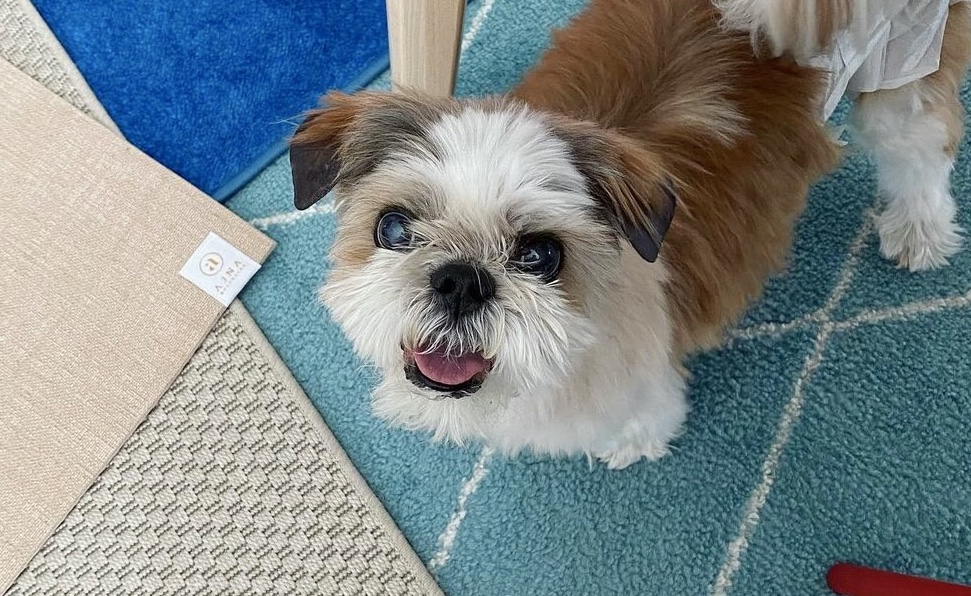
Some humans find Shih Tzus stubborn. But they are smart—they’ve historically been bred to keep people company, and are good at reading emotions and comforting their humans. And because they’re eager to please, you can train them to do amazing things with patience, consistency, and, typically, treats. Miriam Gavin, who owns a Shih Tzu named Pickle, had no trouble at all on this front. “He’s incredibly intelligent and very treat-motivated,” she says, “so training him was easy.” This was a common sentiment among the Shih Tzu owners we heard from. The AKC agrees, rating them as very trainable.
“Miwi listens to what I’m asking her for not all the time but only when she wants to,” says Shih Tzu mom, Yeonji Kong. “I once thought that she wasn’t understanding what I said when I was a beginner Shih Tzu mom, but I came to understand that Shih Tzus choose what to do by themselves. And that is what I love about Miwi. They are the owners of their lives.”
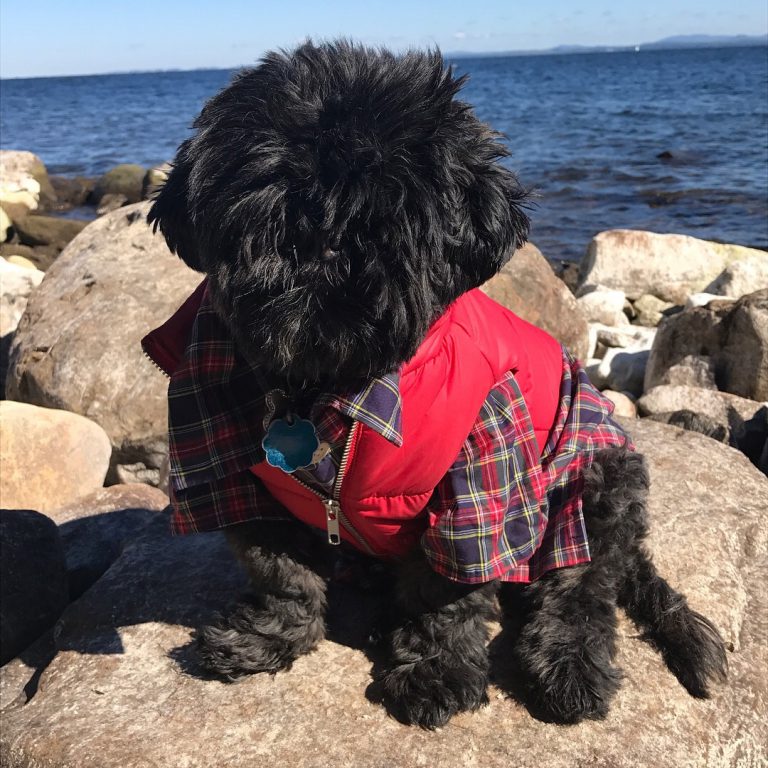
Shih Tzu breed history
The Shih Tzu is said to have originated in Tibet more than a thousand years ago, and the breed’s name comes from the Chinese word for “lion.” As mentioned above, they spent years keeping Chinese royalty company.
Shih Tzus neared extinction early in the 20th century, but their population rebounded thanks to dedicated humans who wanted to keep the breed going. Many sources say that today’s Shih Tzus can all be traced back to a group of 14, seven of each sex.
Admirers introduced the Shih Tzu to various European countries in the 20th century, and Americans returning from military service brought them to the United States by the 1950s. Though they got a later start stateside, Shih Tzus have gained a foothold here—the AKC rates them as the twentieth most popular breed in the country.
Prominent pop-culture Shih Tzus include Daisy from The Secret Lives of Pets 2 (it took them until the sequel to get around to giving a Shih Tzu the spotlight) and Agnes from Best in Show. Agnes’s humans, Stefan and Scott, even create a calendar featuring Shih Tzus starring in an array of classic films including Casablanca and The Hunchback of Notre Dame—though they do have a regrettable attitude toward the possibility of donating any proceeds from sales to a Shih Tzu rescue organization.

Shih Tzu personality
These charismatic, affectionate dogs are likely to revel in a family’s love and attention.
Dana Carter, whose 10-year-old Shih Tzu is named Harley, says: “He has always been there for me and rarely wants to leave my side.” She says he’s also very sensitive—“It’s almost like he can sense my feelings.” This intuition is part of what makes the breed so popular with its devotees.
“He doesn’t like it when you’re busy… He makes these puffing sounds to get your attention.” — Konnae Chandler, owner of Shih Tzu-Maltese mix, Satchel
Hurley Powell, who has a Shih Tzu named Peanut, says: “he is usually in the room his ‘parents’ are in, unless he’s looking out the front window to check out what’s going on outdoors.” While they’re not the academic overachievers that, say, border collies are, Shih Tzus need physical and mental enrichment to keep them entertained—in addition to walks, consider teaching tricks and giving them puzzles to solve. Left alone at home for long periods of time, especially with nothing to do, they’re liable to become unhappy.
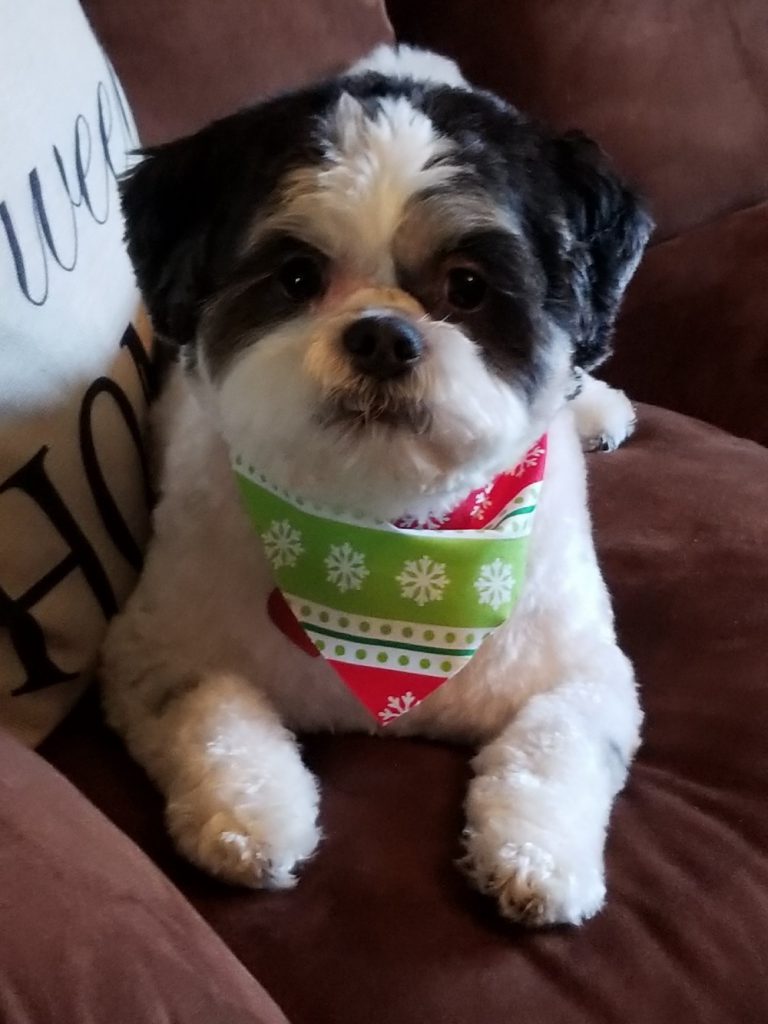
Shih Tzus’ combination of cuteness and savvy means that they can quickly get used to having their way. Calvin Gee, who owns a Shih Tzu named Percy, says his dog “will stand at the edge of the kitchen and let you know it’s time to eat. He will also grab toys from his little toy basket and bring them to [Gee’s] feet for playtime.” Thoughtful Shih Tzu owners will avoid the “cute excuse” so amusing displays of bad manners don’t turn into problematic behavior over time.
As with any other dog, a Shih Tzu’s breeding is not a guarantee of a personality—expect individual quirks. Caroline Isenogle has three Shih Tzus—Leo, Luke, and Libby—each of whom is a bit different. “Libby,” she explains, “likes to hold [her human’s] face with her paws” and lick. Luke grows attached to favorite toys and cries when unable to reach them. Leo, meanwhile, loves time alone with his favorite person but isn’t too fond of others. Be ready to love and look after the particular dog you have.
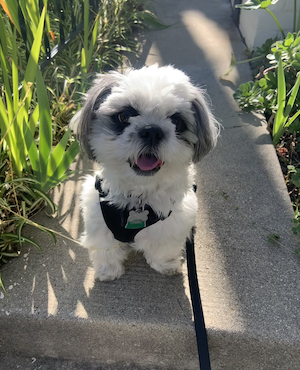
Shih Tzu training
As noted, Shih Tzus have a reputation in some circles for being stubborn or difficult to train—yet they’re also eager to please, and many Shih Tzu owners and experts report that these clever dogs take well to training. Every dog is different, but your best bet to raise a well-behaved dog is patience, kindness, and plenty of treats. Start as early as you can, and be consistent.
Shih Tzus’ primary job is keeping humans company, but every dog should be trained to function without constant attention. To ward off separation anxiety, get your Shih Tzu used to spending some time by themselves, even when you’re around the house. For tips about separation anxiety, read our full guide. Crate training can help, too.
Also remember that attention itself can be a reward—so whether it’s baby talk or admonishment, focusing your energy on a Shih Tzu after a nip or a bathroom accident won’t yield good results. At the same time, don’t yell at these sensitive dogs; they want you to be happy, and won’t respond well to harsh methods.
Some Shih Tzus can bark excessively, but a dedicated owner can address this problem by identifying and addressing the root cause of the behavior. For a detailed primer on how to get started, read our guide.
Well-trained Shih Tzus usually make good family dogs and get along with children and other pets, but those relationships must be mutually respectful. Train your dog not to behave in rude or dangerous ways to others, and make sure that no one, not even a child, ever hurts the dog, including inadvertently through rough play. No dog will appreciate having a tail or ears pulled, or being struck. In addition to dog etiquette, learning to read a dog’s body language can go a long way toward keeping youngsters’ interactions with any pup positive and safe. And always supervise kids and dogs when they’re together.
Healthy lifestyle for Shih Tzus
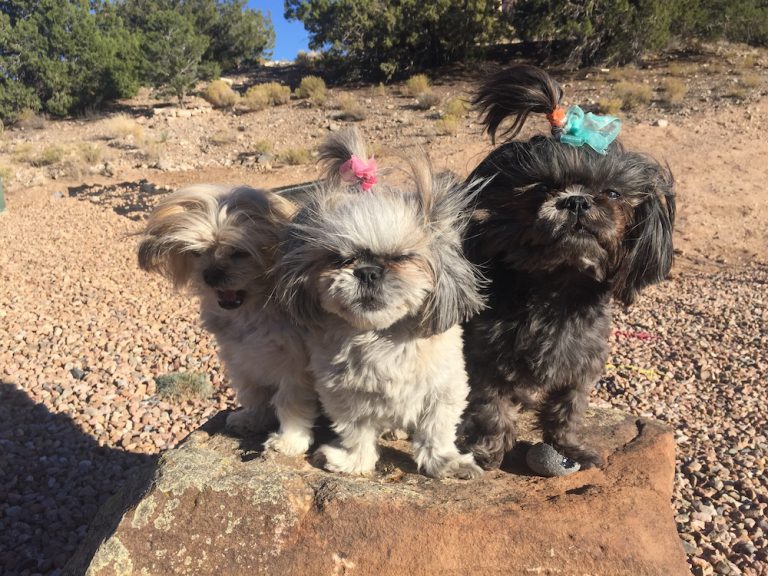
Exercise for Shih Tzus
While companion dogs like Shih Tzus are thrilled to chill with their humans, they are still lively little friends who need daily exercise and mental stimulation. Shih Tzus should get at least two walks a day and regular playtime around the house with their families. Playing fetch and learning tricks can help Shih Tzus stay in shape indoors. Make sure to keep your Shih Tzu entertained and challenge their minds, but don’t get one if you need a running buddy. They’re tiny dogs with flat noses, and aren’t suited to help you train for a marathon.
Because Shih Tzus are brachycephalic, they can have breathing problems, especially in the heat and when heavily exerting themselves. Consider the types of workouts you give them, and how much. Swimming is not a good choice. And while they love to play, Shih Tzus need breaks and shouldn’t be in the sun on hot afternoons. Make sure they stay hydrated and cool, and get lots of breaks, even if they seem up for more play.
Don’t leave your Shih Tzu unattended outside. There are many reasons not to do this, but one is simply that they’re so small. Says Powell of Peanut, “he always has a chaperone because of the coyote, owl, and hawk risks” near their home.
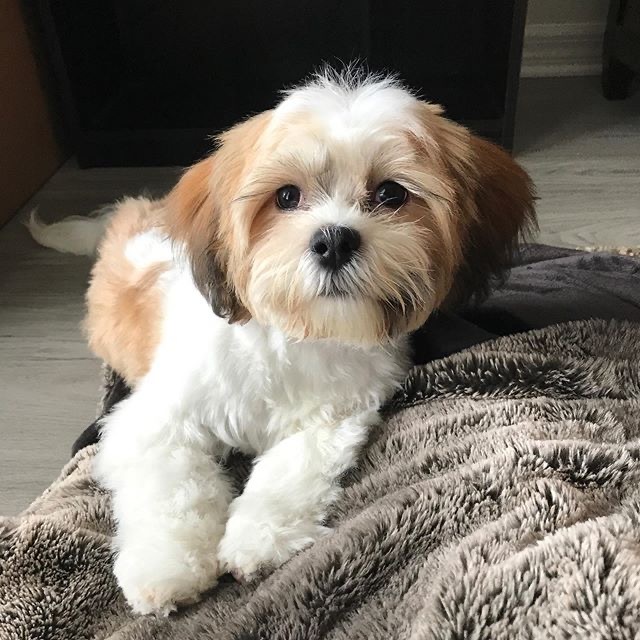
Grooming and bathing
Many Shih Tzu owners comment on how much maintenance the breed’s coat requires. “I wish I knew how fast their hair grows,” says Carter. If you let it grow long, you’ll have to brush every day. If not, you’ll have to regularly keep up a shorter trim. There is good news, though, when it comes to shedding; while there are not really any hypoallergenic dogs, Shih Tzus usually do not shed much.
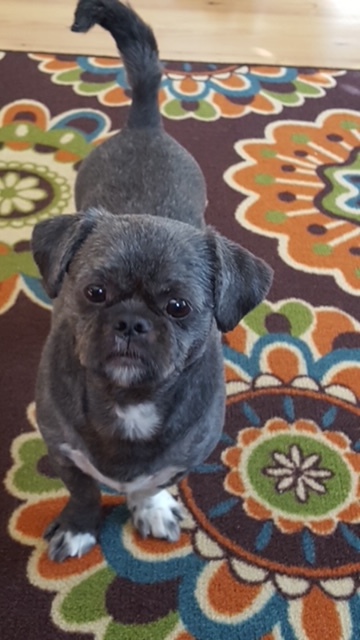
Because of their hair, Shih Tzus may need baths more often than some other breeds— aim for roughly once a month. Don’t go overboard—too much bathing can dry out and irritate a dog’s skin. Just do it enough that your Shih Tzu doesn’t get to look or smell filthy. All dogs should have their nails trimmed; be careful not to cut the quick, and ask a vet or groomer to demonstrate if you’re not sure how to avoid it—otherwise, you could cause your dog unnecessary pain. Shih Tzus can be prone to ear infections, so carefully and regularly clean their ears. Again, if you’re not sure how to do this safely, ask your veterinarian for help.
Common Shih Tzu health problems
Breathing issues: As mentioned above, you should be cautious with Shih Tzus in warm and humid weather—keep them hydrated, seek shade when outside, make sure they have access to plenty of water, schedule outdoor activities in the morning and evening as opposed to the afternoon, and take breaks. And never leave any dog alone in a car.
If you see signs like a lot of panting and drooling, gums that turn dark or bright red, an elevated heartbeat, or bloody vomit or diarrhea—or if your dog collapses—see a vet immediately; they may be experiencing heat stroke. For more on this condition, read our full guide.
Hip dysplasia: This is a condition in which the ball and socket of the hip joint do not fit together properly, which could lead to arthritis or degenerative joint disease. Because hip dysplasia can cause your dog pain or cost them the use of the impacted joint, it’s important that your vet pays close attention to your Shih Tzu’s hips during checkups. If you notice symptoms like a newly limited range of motion, diminished willingness to move around or climb stairs, hopping, pain, or limping, have a vet check your dog out.
Patellar luxation: This is a condition in which a dog’s kneecap slips out of place. Symptoms to watch for include your Shih Tzu picking up one leg and seeming to skip for a few steps, then kicking a leg out to pop the knee back into place. Severe patellar luxation can require surgery, but a vet may be able to treat a milder case with medication.
Eye issues: Shih Tzus can experience progressive retinal atrophy, a genetic disease that causes degeneration of the retina and leads to blindness. There is no effective treatment. Other eye issues that can affect Shih Tzus include eyelids that don’t close properly—leading to corneal dryness and irritation—retinal detachment, and cataracts. Shih Tzus can also suffer from distichiasis, in which dogs grow extra eyelashes that can cause irritation and, in some cases, lead to infections; ectropion and entropion, in which their eyelids roll outwards or inwards; epiphora, in which tears do not drain properly; and a dry-eye condition called keratoconjunctivitis sicca. If you know your Shih Tzu’s history, talk to their rescue organization or breeder to see if they’ve been screened for hereditary eye conditions. Also make sure that the veterinarian examines their eyes, and that you groom them to keep their hair from irritating them.
Ear Infections: Shih Tzus’ floppy ears can become infected if they get dirty. You can consult our guide for some basic tips about cleaning your dog’s ears at home, and talk to your vet about how to best take care of their ears in the long term.
Dental problems: Shih Tzus may be more prone to periodontal disease than most other breeds. Because this often impacts the roots of their teeth, a vet may need to perform X-rays to detect it. Be sure that your vet regularly examines your dog’s teeth during checkups, get professional cleanings if necessary, and institute a daily toothbrushing routine at home.
Renal dysplasia: Dogs with this genetic condition have kidneys that don’t develop properly. It can lead to severe problems up to kidney failure. While treatment can help with some symptoms, renal dysplasia is incurable. Ask your Shih Tzu’s rescue organization or breeder about any family history of this issue.
Intervertebral Disc Disease (IVDD): IVDD is a degenerative disease impacting dogs’ spines, and Shih Tzus are more likely to suffer from the condition than dogs of most breeds. Extra weight puts more strain on the spine, making herniated discs more likely. Signs of IVDD include dragging or weakness of the hind limbs, refusal or reluctance to move around, a hunched back or neck, and crying out in pain. If you notice any of these symptoms, bring your dog to the vet immediately—prompt treatment can make a huge difference in their prognosis.
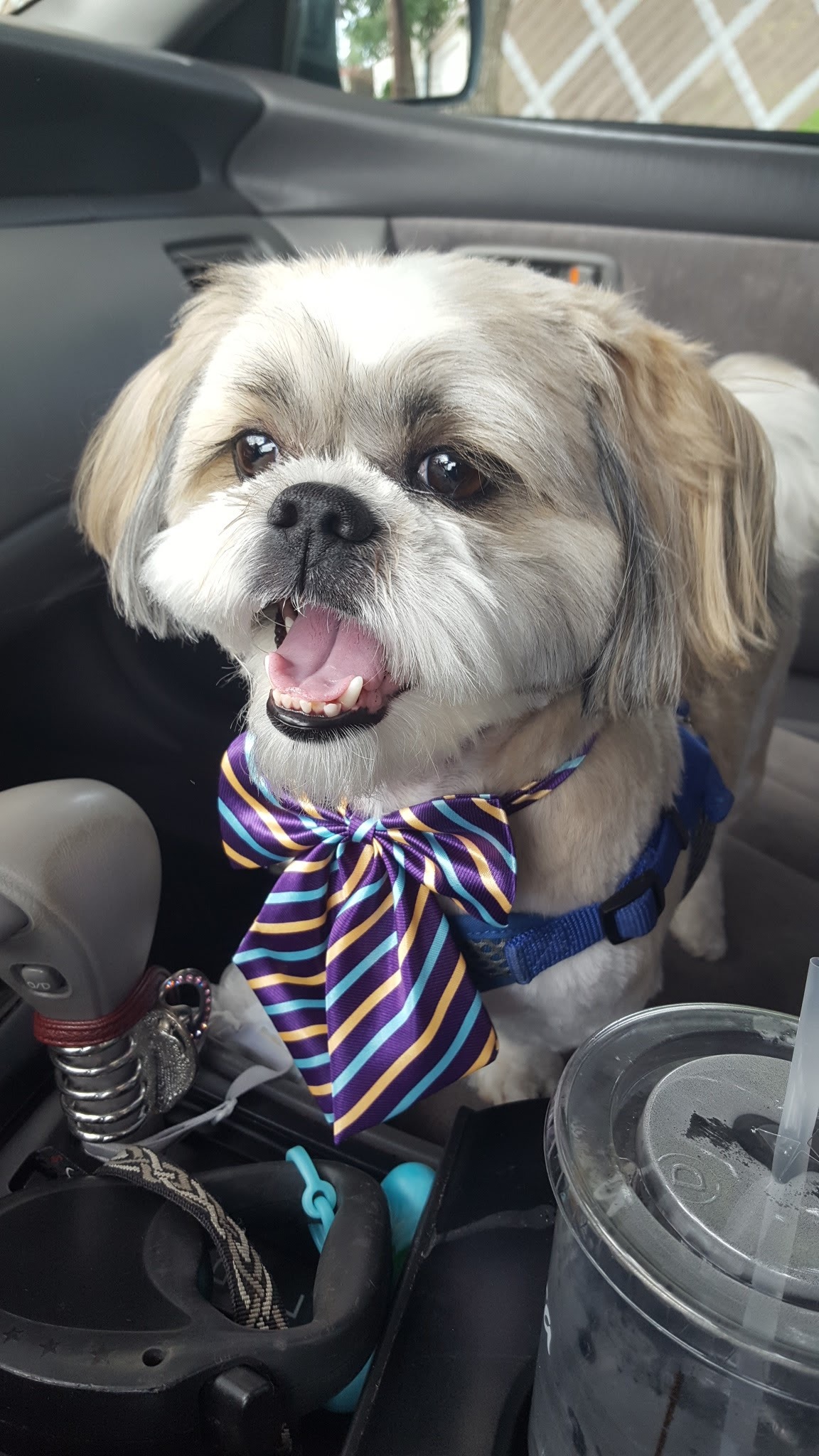
Food and nutrition for Shih Tzus
Like any other dog, a Shih Tzu needs digestible, complete, and balanced food that supplies enough energy for daily activities while helping maintain a healthy weight. A pre-portioned meal plan can work on all of these fronts.
Watch their weight: Extra weight puts added stress on a dog’s heart and joints, and is linked with an array of health conditions, so it’s important to determine the appropriate calorie intake while ensuring proper nutrition. One way to improve your dog’s chances of continued good health is to keep them in an ideal body condition. A pre-portioned fresh-food plan makes it easy to feed the right amount for their age, size, and activity level.
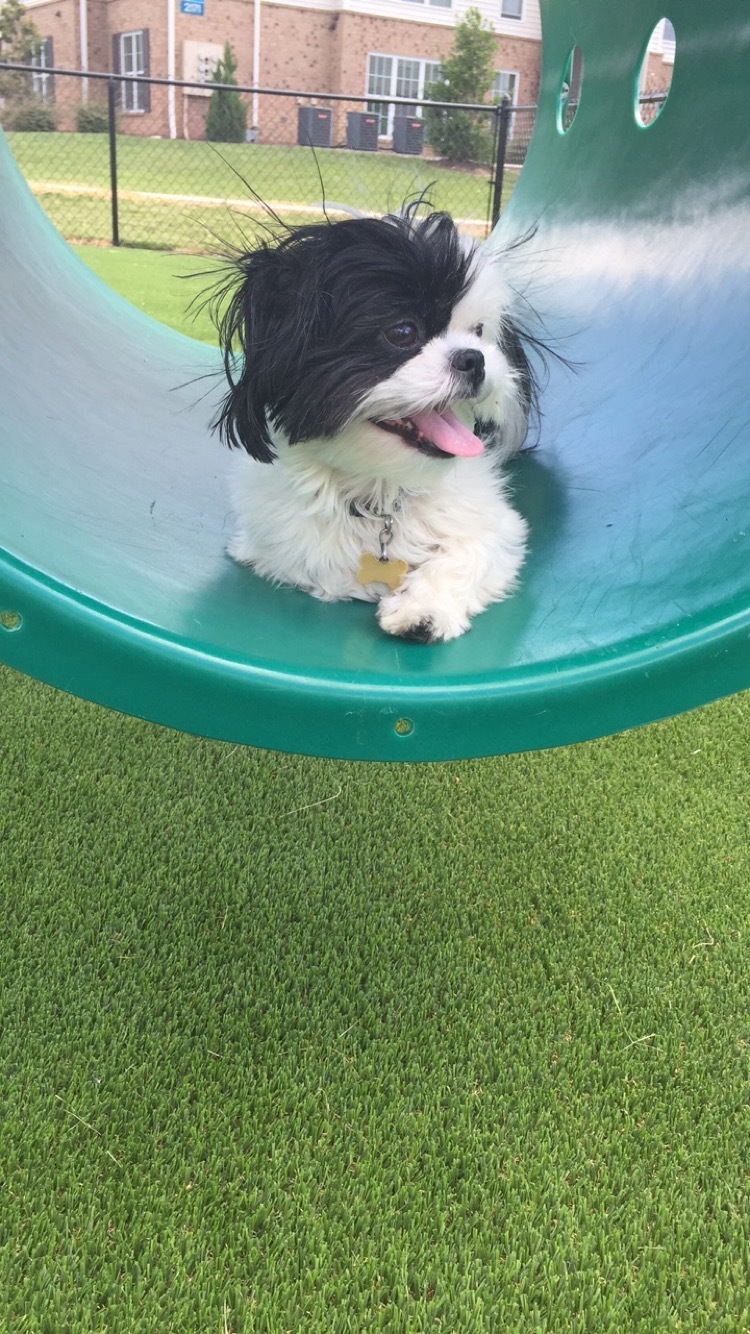
Support heart and joint health: A fresh diet that provides balanced omega-3 fatty acids may promote cardiac health and help ward off joint issues. A pre-portioned fresh food plan also makes it easy to feed the right number of calories every day. This helps maintain a healthy weight, which is another key factor in keeping heart and joints healthy—as well as improving general health and quality of life.
Encourage healthy teeth: Eating for dental health means eating for overall health—a fresh, whole-food diet promotes a healthy immune system, which helps ward off dental maladies. Crunchy kibble is often said to clean teeth, but most kibble does no such thing.
